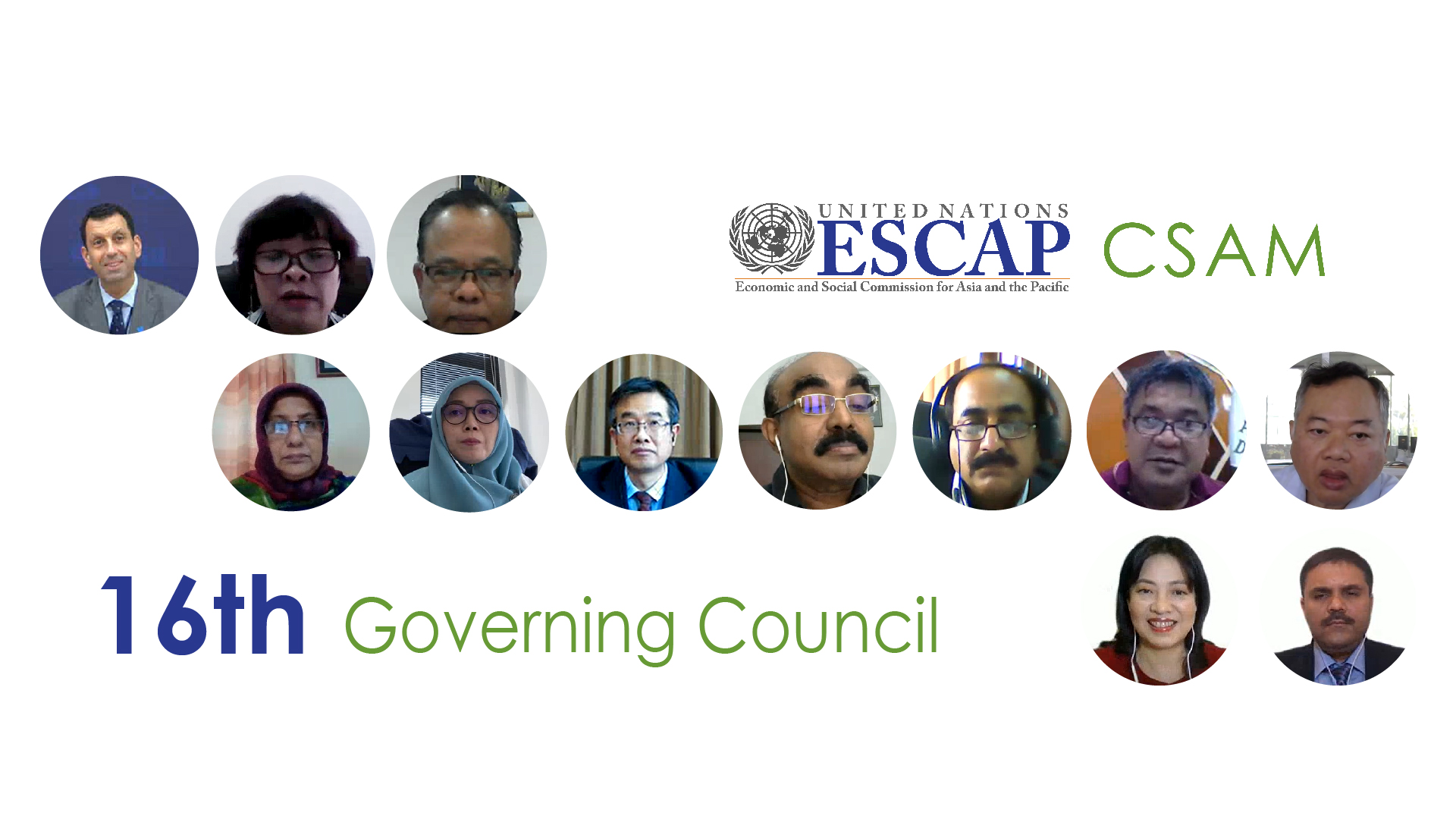16th Session of CSAM Governing Council Expresses Appreciation for Centre's Work

The Sixteenth Session of the Governing Council of the Centre for Sustainable Agricultural Mechanization (CSAM) of the United Nations Economic and Social Commission for Asia and the Pacific (ESCAP) was convened virtually on 4 December 2020. The Session was attended by representatives of all nine members of the Council, namely Bangladesh, Cambodia, China, India, Malaysia, Pakistan, Philippines, Thailand and Viet Nam. Representatives from Japan also attended the meeting as observers.
As part of the deliberations, the Governing Council noted the serious impacts of the COVID-19 pandemic on agricultural production, post-harvest and sale in the region, especially for smallholders, which has resulted in loss of employment and reduction in farmers’ income. The Council recognized the important role of sustainable agricultural mechanization in enabling recovery and building resilience. Addressing the Council members on the occasion, Mr. Kaveh Zahedi, Deputy Executive Secretary of ESCAP, said “Sustainable agricultural mechanization can play a vital role in promoting recovery and resilience. Whether it is to help farmers speed up production operations to catch the season, or enable preservation of the produce until it reaches the point of sale, mechanization offers essential solutions”.
During the Session, the Governing Council expressed appreciation for the work undertaken by CSAM during 2020 in the areas of regional, South-South and triangular cooperation, capacity building, and research and policy advice, especially in view of the constraints posed by the COVID-19 situation. It recommended that CSAM as a regional institution further promote online knowledge exchange on sustainable agricultural mechanization in Asia and the Pacific through webinars and online training, and suggested expansion of its work towards the harmonization of regional testing standards. The Governing Council endorsed the CSAM work report and financial status report for 2020 and work plan for 2021.
